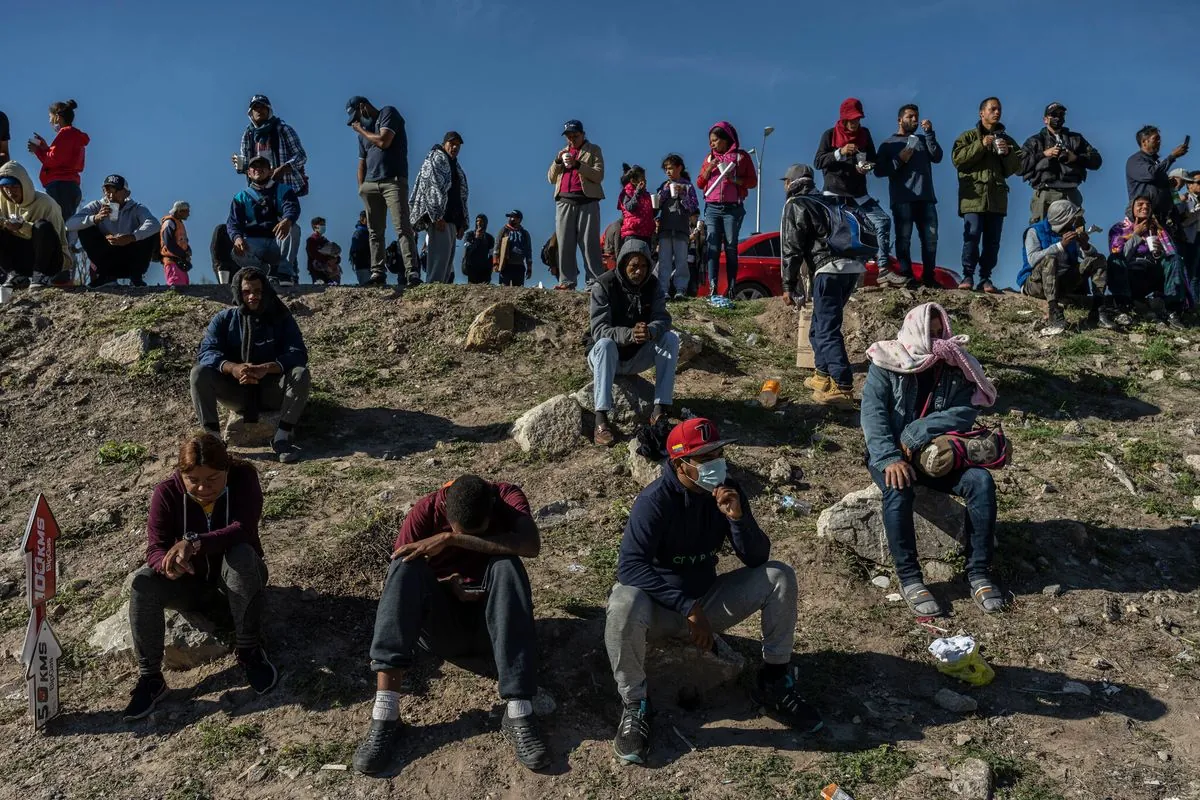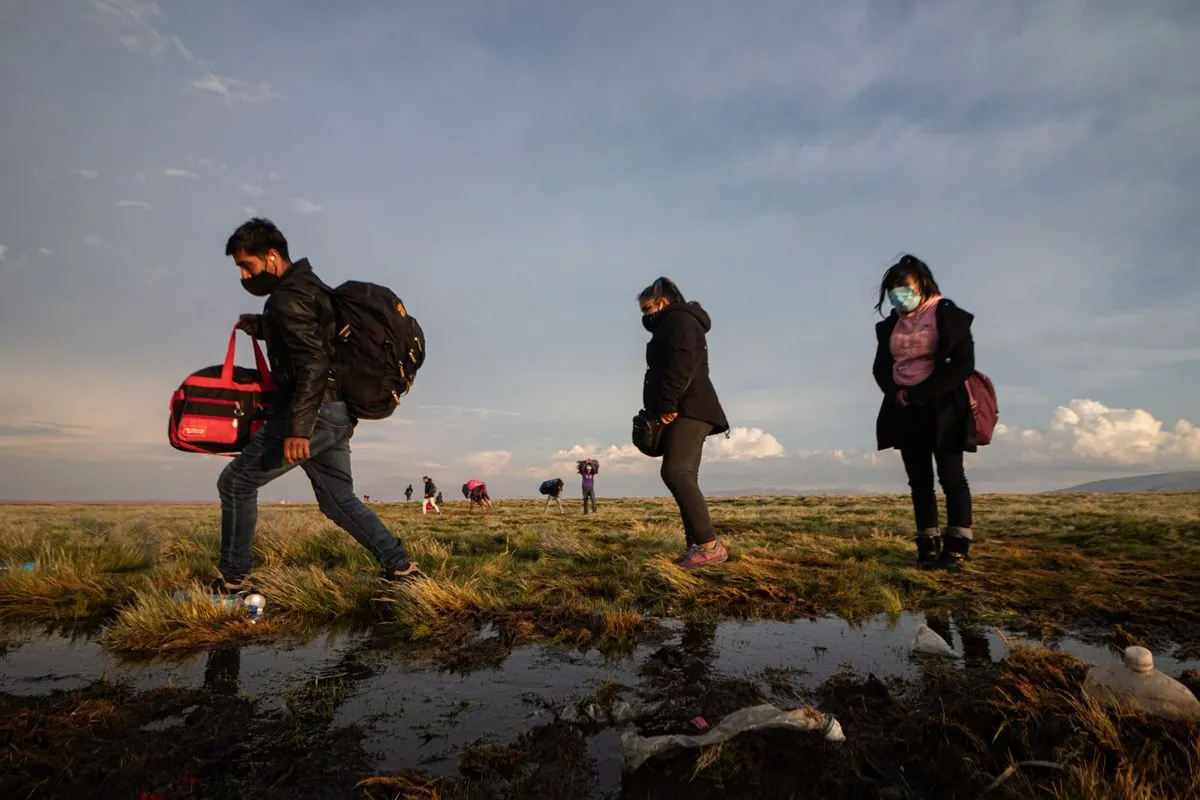Venezuela's Contested Election Sparks Regional Migration Concerns
Maduro's disputed victory in Venezuela's recent election raises fears of increased migration across Latin America. Neighboring countries brace for potential influx, tightening borders and policies.

The recent contested election victory of Nicolás Maduro in Venezuela has ignited concerns about a potential new wave of migration across Latin America. Over the past eleven years since Maduro assumed the presidency, an estimated 7.7 million Venezuelans have fled their homeland, according to United Nations data.
Venezuela, once one of the wealthiest nations in Latin America due to its vast oil reserves, has experienced a severe economic crisis since 2013. The country's currency, the bolívar, has undergone three redenominations since 2008 due to hyperinflation, which reached an astounding 1,000,000% in 2018.
Neighboring countries are now preparing for a possible increase in Venezuelan migrants. Chile, Peru, and Brazil have begun tightening their border security and immigration policies. Chile, which boasts one of the highest GDP per capita in the region, has recently acquired thermal cameras to monitor illegal border crossings.
"It's not that a migratory flow will start now. What can happen is that it may increase and reach a larger scale. We must prepare."
The influx of Venezuelan migrants has led to social tensions and rising crime rates in host countries. In Chile, the homicide rate nearly doubled in 2022 compared to the previous year. The notorious Tren de Aragua gang, which originated in Venezuela's Aragua State in 2012, has expanded its operations into Chile, contributing to the country's security concerns.

Peru, which has the second-largest Venezuelan migrant population after Colombia, is also experiencing the impact of the migration crisis. In Lima's largest open-air apparel market, Venezuelan vendors now account for over 20% of the 100,000 sellers, leading to increased competition and tensions among local workers.
Colombia, sharing a 2,219-kilometer border with Venezuela, has been more welcoming, granting temporary protected status to approximately 2 million Venezuelans in 2021. However, the sustainability of this program is now in question as resources become strained.
As the crisis deepens, some countries are proposing new measures to address the migration issue. Chile's lawmakers have introduced a bill that could impose prison sentences of up to 541 days for illegal entry. Additionally, there are discussions about implementing a quota system similar to the one used by the European Union during the 2015 Syrian refugee crisis.
The ongoing situation may lead to further family reunifications outside Venezuela, potentially becoming permanent. As the region grapples with this humanitarian challenge, the international community, led by organizations like the United Nations High Commissioner for Refugees (UNHCR), continues to seek solutions to protect and support the growing number of Venezuelan refugees and migrants across Latin America.


































